The slow-burning war pitting militarized Kurdish groups in Iraq against the governments of Turkey and Iran has escalated since mid-August. Most notably, Turkish fighter jets have flown multiple bombing runs on bases of the Kurdistan Workers Party (PKK). The Turkish bombing campaign, occurring inside northern Iraq, is reportedly being conducted in retaliation for a series of PKK attacks that have left more than two dozen Turkish soldiers dead since the beginning of the summer. Meanwhile, a PKK offshoot known as the Party for a Free Life in Kurdistan (PJAK) is engaged in ongoing clashes with Iranian forces, with Iranian officials […]
War & Conflict Archive
Free Newsletter
I had the pleasure of participating in France 24’s panel discussion program, The World This Week, on Friday. The program focused on the impact of Sept. 11 on America and the world over the past decade. The other guests were Ahmed Rashid, Newsweek’s Christopher Dickey, the IHT’s Eric Pfanner, Nooshabeh Amiri and France 24’s Loick Berrou. Part I can be found here. Part II can be found here. I was especially struck by Eric Pfanner’s observation that this is the first Sept. 11 anniversary where we can consider its impact from the perspective of historic closure. The anniversary has already […]
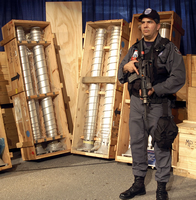
Eight years after Moammar Gadhafi gave up his mail-order nuclear weapons program and chemical munitions in exchange for détente with the West, he has been chased from power by a ragtag rebel army backed by Western airpower. Chances are that Gadhafi regrets his decision to forgo his WMD programs. If he had been armed with nuclear or chemical weapons, NATO might not have intervened when he threatened to massacre his own people. While Gadhafi’s fall is good news, the end of the eccentric colonel’s dictatorship now heightens the challenge of getting the Irans and North Koreas of the world to […]
In thinking about the ways in which Sept. 11 and our responses to it changed America and the world, it’s important to remember that some of its impact, and perhaps the most historically significant aspects of that impact, may not have entirely emerged yet. In August 1945, for instance, while the advent of radar, jet technology and nuclear weapons were plainly evident, it would have been close to impossible to foresee the way in which the war effort, both domestically and in theater, would go on to inform the black civil rights movement and women’s liberation movement 20-25 years later. […]
A recent uptick in attacks on Colombia’s energy infrastructure, along with a 25 percent increase in kidnappings, has prompted speculation about whether major security gains made in the country over the past decade may be deteriorating. While the current spate of violence pales in comparison to the bloodshed that burdened Colombia through the 1990s and early 2000s, according to Michael Shifter, who heads the Inter-American Dialogue in Washington, the recent attacks could create serious political challenges for Colombian President Juan Manuel Santos. Shifter reminded Trend Lines on Thursday that upon succeeding Álvaro Uribe as president of Colombia last year, Santos […]
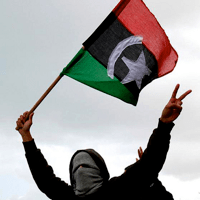
Post-Gadhafi Libya is set to become the next major test of two competing approaches to international affairs — the “gratitude doctrine” of the Western alliance pitted against the “strict neutrality” practiced by Beijing. The “gratitude doctrine,” in short, is the West’s assumption that providing assistance to those seeking to overthrow a repressive regime — especially in the form of timely military aid to counterbalance the overwhelming advantages enjoyed by the forces of the dictator — will produce a successor government that will be more receptive to U.S. and European influence and more responsive to their interests and concerns. The doctrine’s […]
With Moammar Gadhafi now ousted, Libya’s National Transitional Council (NTC) is scrambling to restore order to Tripoli. It remains to be seen whether international peacekeepers will be needed during the months ahead to ensure a peaceful transition toward a sustainable post-revolution society. An Iraq-style security meltdown seems, at the moment, improbable. However, should it occur, the question of who from the international community might best be suited to intervene is likely to prove problematic, says Jane Kinninmont, a senior research fellow with the Middle East and North Africa Program at Chatham House in London. While NTC leaders and opposition rebels […]
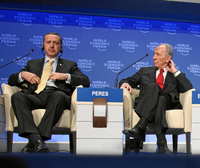
Among the many recent changes reshaping the Middle East’s political topography, one of the most striking has come not from masses of protesters chanting in the streets or from armed rebels fighting for change, but from suit-and-tie diplomats and politicians flexing their muscles in an effort to prove to various audiences just how strong they and their country are. That is how the decades-old alliance between Israel and Turkey, one of the defining features of what now seems a bygone era in the Middle East, is collapsing: in a muddle of acrimony and recrimination. The growing friction has been exacerbated […]
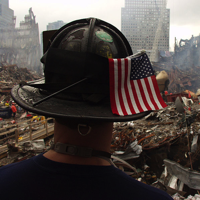
Editor’s note: This is the first in a two-part series on the impact of Sept. 11 on U.S. foreign policy. Part I examines the militarization of U.S. foreign policy following Sept. 11. Part II will examine ways to reverse this trend. On Sept. 11, 2001, nearly 3,000 Americans were killed in the single deadliest terrorist attack in American history — the work, not of a foreign army, but of al-Qaida, a nonstate actor. The U.S. wasted little time in responding. The Taliban government in Afghanistan that had provided safe haven for the terrorist group was quickly deposed by a combination […]
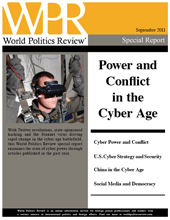
With Twitter revolutions, state-sponsored hacking and the Stuxnet virus driving rapid change in the cyber-age battlefield, this World Politics Review special report examines the state of cyber power through articles published in the past year. Below are links to each article in this special report, which subscribers can read in full. Not a subscriber? Purchase this document for Kindle or as a PDF from Scribd. Or subscribe now. Cyber Power and Conflict Power in the 21st CenturyBy Joseph S. Nye, Jr.March 22, 2011 Evolutions in Asymmetric CyberpowerBy Chris C. Demchak April 19, 2011 Re-Categorizing Cyber ConflictBy Eric Sterner July 8, […]
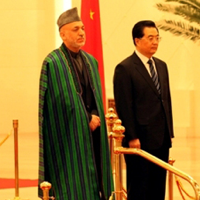
As part of a conference hosted by Beijing University, I spent last week conducting interviews and participating in roundtables with Chinese academics and government officials. Many of these talks addressed recent developments in Afghanistan, a country of strong interest to China due to its proximity, natural resources and historical links to regional terrorism and narcotics trafficking. Based on my conversations and other sources, it is clear that Chinese policymakers hold conflicting sentiments regarding the planned U.S. and NATO military withdrawal from Afghanistan, which has already begun and will likely be completed in a couple years. Chinese officials expressed their commitment […]
